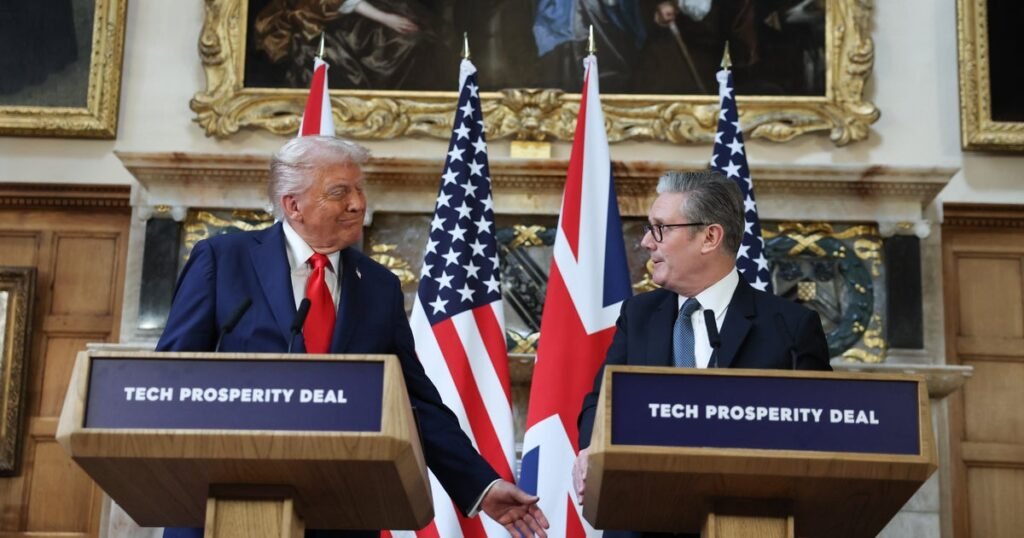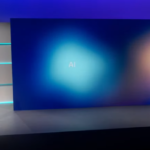Meta Connect 2025’s keynote introduction saw Mark Zuckerberg introduce plenty of new AR hardware for consumers. But below the surface, new innovations could resurrect
Previously, the iconic CEO has bet heavily on the popularity of the Metaverse, but it quickly had its spotlight stolen by AI. The speed of 3D design remains one of the Metaverse ecosystem’s key constraints, the Meta CEO highlighted.
The metaverse opens news opportunities for enterprises – for training, construction, real-estate walkthroughs, and meetings – but they currently don’t have the time and resources of James Cameron to design these spaces.
In his speech, Zuckerberg highlighted two new innovations that could speed up this process and ensure greater accessibility – possibly sparking a revival of his once-dead Metaverse dream.
Faster Metaverse Design with AI Prompts
Throwing AI into the equation can speed up the creation process on Meta Horizon World, its multiplayer metaverse platform. The company has already released several tools to help developers create virtual textures, audios, and backgrounds.
Zuckerberg explained:
Soon Meta Horizon Studio is going to include an agentic AI assistant that will stitch together all these tools and further speed up the creation process using simple text prompts.
Bringing 3D objects to life will be as accessible as submitting a prompt to Meta AI today, Zuckerberg predicted.
We want to help bring about a future where anyone can just dream up any experience you think of and just create it. With AI we are starting to see this with writing and photos and even the early part of videos.
This AI assistant will be powered by the company’s brand-new Meta Horizon Engine, something the company have been building in the background for years.
Now you are going to be able to easily create infinite connected spaces that look way better, with realistic physics and interaction.
Replicating Physical Spaces with Hyperscape
An alternative method of quickly generating virtual worlds is through Hyperscape Capture, which is now available for early access, Zuckerberg announced.
The capture process involves an individual with a Quest headset walking around a physical space for a few minutes to scan the environment. This scan will then be turned into an identical virtual space – ready for immersion and interaction.
Details about Hyperscape Capture remain limited. The Meta CEO merely mentioned that in the future these ‘captured’ spaces can be integrated into the wider Horizon metaverse, and that “it’s pretty awesome”.
Enterprise Use Cases
While Meta Connect 2025 was geared towards traditional consumers, the two metaverse innovations highlighted by Zuckerberg could open new possibilities for the future of work.
With the ability to create 3D objects with text prompts, HR departments could quickly design custom spaces where they can host training sessions and customer experience assessments.
Hyperscape Capture could enhance virtual tours in the real estate industry, with agencies about to quickly scan new locations for prospective tenants to explore from anywhere in the world.
For corporations with a global workforce, your everyday boardroom can be transformed into a living, immersive hub for collaboration in minutes. And with the opening of Meta’s new physical store in London, Quest headsets may see growing popularity.
The renewed prospect of the metaverse will be an additional force for change alongside AR innovations, such as Amazon’s Amelia glasses which will assist delivery drivers with route guidance, obstacle detection, and more.
Upskilling the Modern Workforce
Being able to quickly and easily create 3D virtual objects could soon become a vital skill in the workplace, posing questions about personnel.
Will Metaverse design experience quickly become a highly desirable trait among HR managers? Should companies retain a specific AR expert if the technology becomes accessible to everyone?
As AI-driven design and spatial capture lower the barrier to entry, virtual workspaces may no longer be a futuristic vision but an imminent reality. The question is whether your organization can find a way to harness the metaverse and deliver ROI.



















































